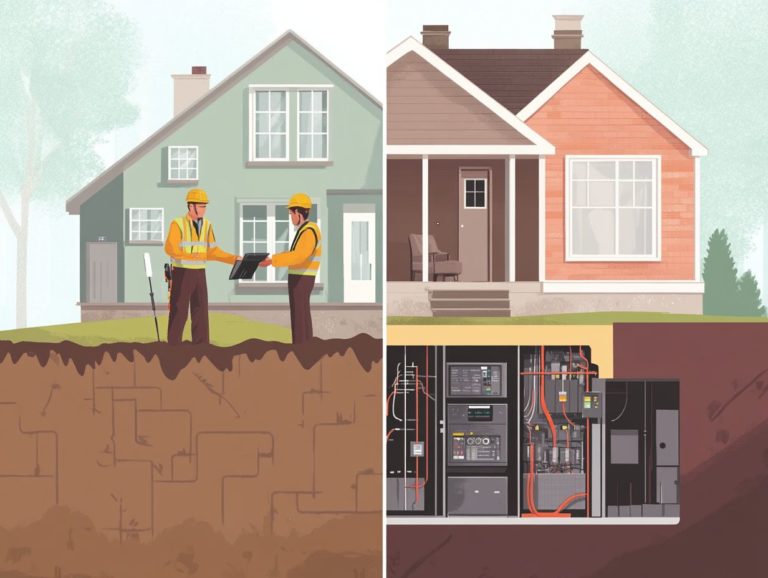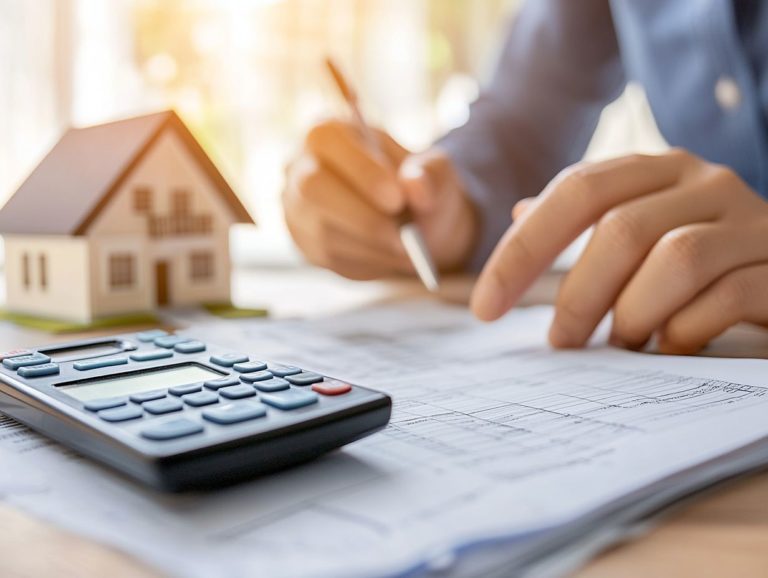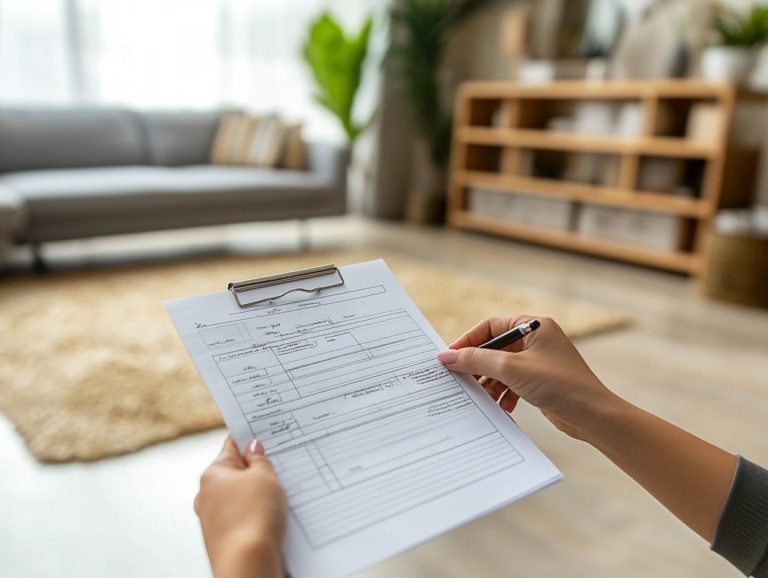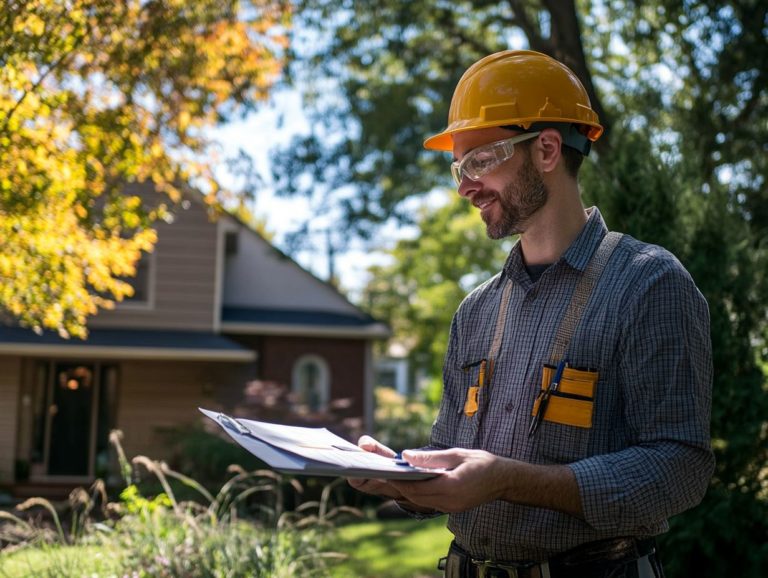What to Do About Unfavorable Inspection Results
Understanding inspection results can feel overwhelming, particularly when you encounter unfavorable findings. This guide is here to help you interpret those results, address any concerns, and implement effective solutions.
You will discover actionable steps to correct issues and prevent them from recurring in the future. Furthermore, we’ll discuss the significance of building good communication with inspectors, which can lead to a smoother inspection process.
Whether you re a business owner or tasked with compliance responsibilities, this resource will empower you to take control of your inspection outcomes.
Contents
- Key Takeaways:
- Understanding Inspection Results
- Addressing Unfavorable Results
- Correcting the Issues
- Preventing Future Unfavorable Results
- Working with Inspectors
- Frequently Asked Questions
- What should I do if I receive unfavorable inspection results?
- Who should be involved in addressing unfavorable inspection results?
- How can I improve my chances of passing a future inspection?
- Can I appeal the findings of an unfavorable inspection?
- What resources are available to help me address unfavorable inspection results?
- How can I prevent unfavorable inspection results in the future?
Key Takeaways:
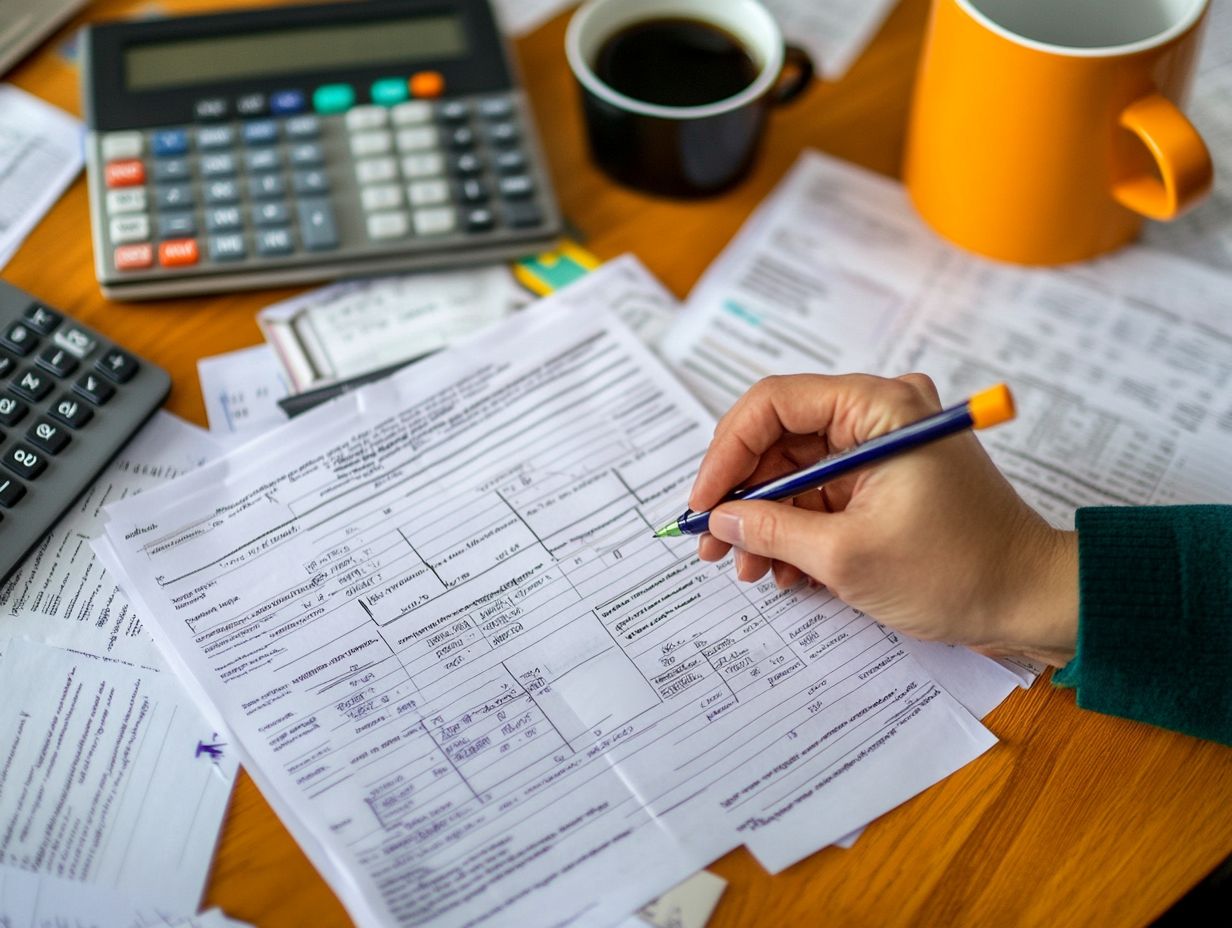
Take action promptly when faced with unfavorable inspection results to address and correct any issues. Understand and interpret the findings of an inspection to effectively communicate and collaborate with inspectors. Implement steps you can take in advance to prevent future unfavorable results and maintain compliance with regulations.
Understanding Inspection Results
Understanding inspection results is an important part of buying a home. A thorough home inspection offers you detailed insights into the property’s condition, uncovering any significant issues that might affect your investment.
This process not only aids your decision-making but also empowers you with essential information to address any buyer concerns regarding the safety and integrity of the property.
By meticulously reviewing the home inspection report, you can gain a clearer perspective on your obligations and the significance of various findings. This ultimately influences your negotiations and the closing process.
Interpreting the Findings
Interpreting the findings in a home inspection report is essential for you as a buyer to accurately assess the property’s condition and identify any necessary repairs.
By examining specific elements like plumbing issues, electrical problems, and roofing concerns, you can gain valuable insights into the overall integrity of the home. For instance, spotting major plumbing leaks may signal significant repairs ahead.
Minor cosmetic touch-ups, like chipped paint or outdated fixtures, might just require a weekend’s effort from you. Carefully categorize these findings, distinguishing between major issues that could impact safety and livability and those that are purely aesthetic.
Addressing common buyer anxieties, such as the fear of unforeseen expenses or safety hazards, will empower you to make informed decisions about your potential new home.
Addressing Unfavorable Results
Addressing unfavorable results from a home inspection calls for a strategic mindset. As a buyer, you need to evaluate how to negotiate repairs or concessions based on the inspection findings.
When the report unveils significant issues like foundation troubles, pest infestations, or mold you may need to weigh your options. This may mean requesting repairs or a closing credit, both of which can strengthen your position in negotiations.
Know your legal rights and options to make informed choices, as these factors will play a crucial role in determining your best course of action during the inspection process.
Steps to Take After an Unfavorable Inspection

After receiving unfavorable inspection results, it s crucial for you to take specific steps to address the issues highlighted in the home inspection report. This ensures you clearly understand your obligations and rights.
The first step is to discuss these findings with your real estate agent. This conversation will provide you with a comprehensive understanding of the implications and potential options available to you. By collaborating with your agent, you can prioritize necessary repairs and pinpoint which issues demand immediate attention.
Once you establish these priorities, it s essential to formulate negotiation strategies aimed at securing concessions from the seller. Whether it s negotiating a reduction in sale price or ensuring repairs are made before closing, this proactive approach not only safeguards your investment but also paves the way for a smoother transition in the closing process.
Correcting the Issues
Correcting the issues highlighted in a home inspection is essential. Not only does it maintain the property s value, but it also addresses safety concerns that may arise from identified defects.
Engaging a qualified contractor for necessary repairs helps tackle significant issues like plumbing, electrical systems, and structural integrity. This proactive approach enhances the property’s overall condition and alleviates potential buyers’ concerns, ensuring a smoother transaction process.
Methods for Resolving Problems
Several effective methods can help you resolve issues identified during a home inspection.
One option is to hire a contractor to address specific problems, such as roofing issues, foundation concerns, or electrical complications.
If you’re up for it, consider handling minor repairs yourself! Online resources and tutorials can guide you through basic plumbing fixes or wall patches.
For more complex tasks, like HVAC repairs or significant structural work, it s crucial to bring in a qualified professional. Remember, hiring experts can cost anywhere from hundreds to thousands of dollars, depending on the repairs.
By accurately identifying common challenges like leaky roofs or outdated wiring and addressing them promptly, you safeguard your investment and enhance the comfort and safety of your living space.
Preventing Future Unfavorable Results
Preventing unfavorable outcomes from home inspections is crucial for homeowners who want to preserve their property’s value and facilitate a seamless selling process.
Prioritizing regular home maintenance dramatically decreases the chances of facing significant issues during future inspections, such as plumbing or electrical problems, and even pest infestations.
Checking your home beforehand and familiarizing yourself with the property s history, along with understanding disclosure requirements, gives you the power to tackle potential concerns proactively.
This approach enhances your home s appeal and helps you avoid legal complications in the future.
Proactive Measures for Avoiding Issues

Proactive measures for avoiding issues during home inspections start with regular maintenance strategies that tackle potential problems like pest infestations, termite damage, and mold before they spiral out of control.
Routine inspections of critical elements, such as the roof, plumbing, and electrical systems, significantly mitigate risks and stave off costly repairs in the future.
For instance, regularly checking your roof helps you spot worn shingles or leaks before they become major headaches. Similarly, monitoring your plumbing system for leaks or corrosion can prevent water damage and mold growth. Regular electrical system check-ups ensure that your wiring meets code, minimizing the risk of electrical fires.
These proactive steps help maintain your home s value and offer peace of mind by facilitating the early detection of potential hazards!
Working with Inspectors
Effectively collaborating with inspectors is essential for a successful home inspection process. Prioritizing clear communication and teamwork enhances your understanding of the inspection results and their implications.
Engaging a qualified home inspector provides valuable insights into potential major issues from structural integrity to safety concerns while nurturing a productive relationship that can facilitate negotiations.
Real estate agents can play a crucial role in this collaboration, ensuring that everyone remains informed and aligned throughout the inspection journey.
Effective Communication and Collaboration
Effective communication with your home inspector is crucial for grasping the inspection findings and managing your expectations as a buyer throughout the process.
You should consider asking insightful questions during the inspection. Inquiring about the severity of any reported issues or what potential repair costs might look like can be particularly enlightening.
It’s vital to clarify any findings that seem unclear, ensuring you fully understand their implications.
Talk openly with inspectors, buyers, and agents to share knowledge. This creates a common understanding that allows everyone to effectively address concerns and expectations.
This collaboration not only makes the inspection process clearer but also gives you the power to make informed decisions based on clear, consistent information from all parties involved.
Frequently Asked Questions
Got questions about inspection results? Here are some answers that can help you navigate this tricky situation.
What should I do if I receive unfavorable inspection results?

If you have received unfavorable inspection results, the first thing you should do is carefully review the findings and understand the areas that need improvement. This helps you quickly create a solid plan to tackle the issues!
Who should be involved in addressing unfavorable inspection results?
When it comes to addressing unfavorable inspection results, it is important to involve all relevant team members and stakeholders. This includes management, staff, and any external consultants or advisors who can offer insight and expertise.
How can I improve my chances of passing a future inspection?
The best way to improve your chances of passing a future inspection is to take the time to thoroughly address and correct any issues identified in the unfavorable inspection results. This may involve implementing new policies or procedures, providing additional training for staff, or making necessary improvements to facilities or equipment.
Can I appeal the findings of an unfavorable inspection?
Yes, you have the right to appeal the findings of an unfavorable inspection. However, it is important to carefully consider the reasons for your appeal and gather any necessary evidence or documentation to support your case. It may also be helpful to seek guidance from a legal or regulatory expert before submitting an appeal.
What resources are available to help me address unfavorable inspection results?
There are many resources available to help you address unfavorable inspection results. This includes regulatory guidelines and resources, industry associations, and consultants or advisors who specialize in compliance and inspection readiness.
How can I prevent unfavorable inspection results in the future?
The best way to prevent unfavorable inspection results in the future is to establish and maintain a strong culture of compliance within your organization. This includes regularly reviewing and updating policies and procedures, providing ongoing training for staff, and conducting internal audits to ensure that you consistently meet regulatory requirements.

